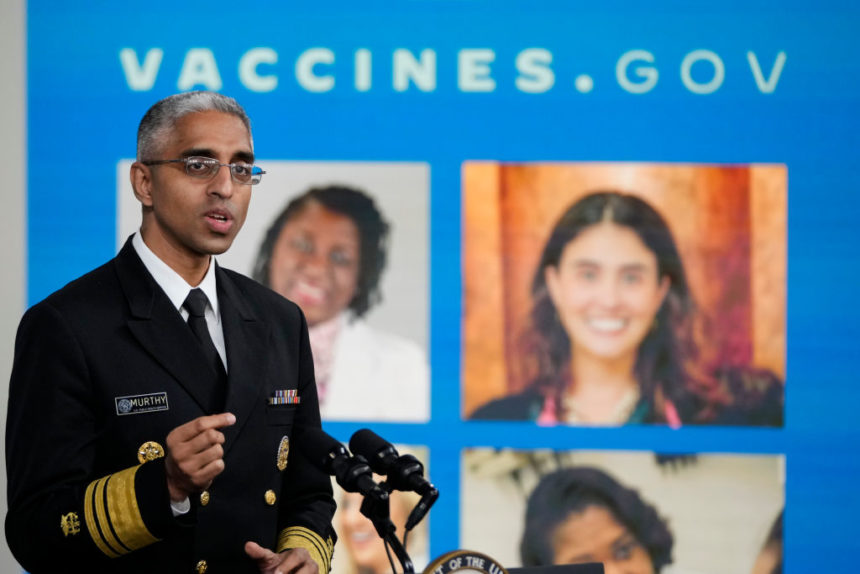Alongside record drug overdose death rates, the U.S. has been grappling with a rise in anxiety, depression and other mental health conditions. Earlier this week, the government announced plans to tackle it head-on, with Surgeon General Dr. Vivek Murthy issuing a public advisory that flagged a “mental health crisis” among young people.
The advisory was accompanied by a 53-page report outlining the factors contributing to rising rates of mental health distress. The report also proposed ways to begin addressing them at the local, community and individual level.
“It would be a tragedy if we beat back one public health crisis only to allow another to grow in its place,” Murthy wrote.
The rise in mental health issues and suicides predates the pandemic. Still, the announcement represents the first time mental health has been identified at the federal level as a public health crisis.
“This isn’t new. This is something that the pandemic has exacerbated and put a spotlight on,” said Dr. Katherine Ort, clinical assistant professor at the Department of Child and Adolescent Psychiatry at the NYU Grossman School of Medicine.
The Surgeon General’s report breaks down several factors that play a role in mental health among young people, starting at the individual level (age, race, ethnicity and sexual orientation, among others). It considers community and environmental factors alongside larger societal issues like inequity and racism, as well as bullying, pandemic-induced economic hardship, increased isolation and social media.
“Young people are bombarded with messages through the media and popular culture that erode their sense of self-worth — telling them they are not good-looking enough, popular enough, smart enough or rich enough,” Murthy explained in the report. “That comes as progress on legitimate, and distressing, issues like climate change, income inequality, racial injustice, the opioid epidemic and gun violence feels too slow.”
Public advisories are typically reserved for “significant public health challenges that need the nation’s immediate awareness and action,” the report states. But mental health experts believe the urgency attached to the advisory is more than merited.
“This is what’s necessary,” Ort stressed. “There are things that are impacting individuals, but it’s really a systemic issue. Unless we start to change from the top, it’s not going to make a difference.”
Laura Horne, chief program officer at nonprofit organization Active Minds, agrees that the Surgeon General’s advisory is an encouraging first step in making mental health among young people a national priority. She believes it legitimizes mental health as a public health crisis.
“Mental health historically has been treated as a clinical issue,” she explained. “What we see now is that mental health is a public health issue, and that’s never been clearer than during the pandemic. It’s not just about increasing mental health services, but also addressing some of the root issues impacting youth mental health.”
Of course, understanding those root issues requires a broader understanding of mental health, one that many policy experts lack.
“Mental health has become siloed, but mental health is in everything,” Horne said. “Can we talk about gun violence and income inequality, and what their impact is on mental health? These trends are so dire that we need to get serious, innovative and strategic and take a community-wide approach.”
The Surgeon General’s report outlines several ways society as a whole — including technology companies, employers, state and local governments and media organizations — can begin addressing the crisis. Schools, for example, can incorporate mental health education for staff members to better recognize symptoms in students and provide earlier interventions.
In order to increase access, there may also be a significant need to change the way mental healthcare is reimbursed and heighten the existing focus on equity. Additional funding for research will likely help develop better evidence-based practices, Horne added.
But for now, the message has certainly been heard — and experts hope it will get the ball rolling.
“We’ve been waiting for something like this,” said Jennifer Rothman, senior manager of the youth and young adulthood initiatives task force at the National Alliance on Mental Illness. “The more leadership that speaks up and calls to the importance of looking at mental health as an overall health concern, the more people want to step up and help. It’s on all of us to make mental health more of a priority, because our kids are suffering.”







